
Peer tutoring program makes a difference for ASU economics students
The ASU Department of Economics at the W. P. Carey School of Business is pleased to announce the Undergraduate Economics Instructional Scholars (UEIS) for Spring 2023 — current W. P. Carey economics students who are nominated by professors to serve as tutors for 300-level and 400-level economics courses. Each scholar works with the professor who nominated them, serving as a tutor for that faculty member’s courses.
Delivering tutoring services online and on campus, the UEIS program provides economics students with consistent access to student leaders who have already excelled in their courses. Students selected as scholars receive a unique opportunity to mentor fellow students while being mentored by an economics professor.
Meet the scholars for Spring 2023

Sadie Hoberman
Question: How did you end up in economics?
Answer: I took ECN 312 my first year on a whim because one of my friends was taking it. I enjoyed the class so much that I decided to pursue economics as a second major!
Q: What do you like most about economics so far in your academic career?
A: I like being able to understand more of what is behind people’s thought process. People usually apply economics to financial decisions, but economic theories can be applied to almost any situation.
Q: What are your future career aspirations?
A: I’m currently thinking about consulting. Both my majors, business data analytics and economics, could be applied to this role. This would allow me to travel, meet different people, and fix problems, which are all things I am looking for in a job. I am currently interning for a startup, and I really like working with them, so I would like to specialize in startup consulting.
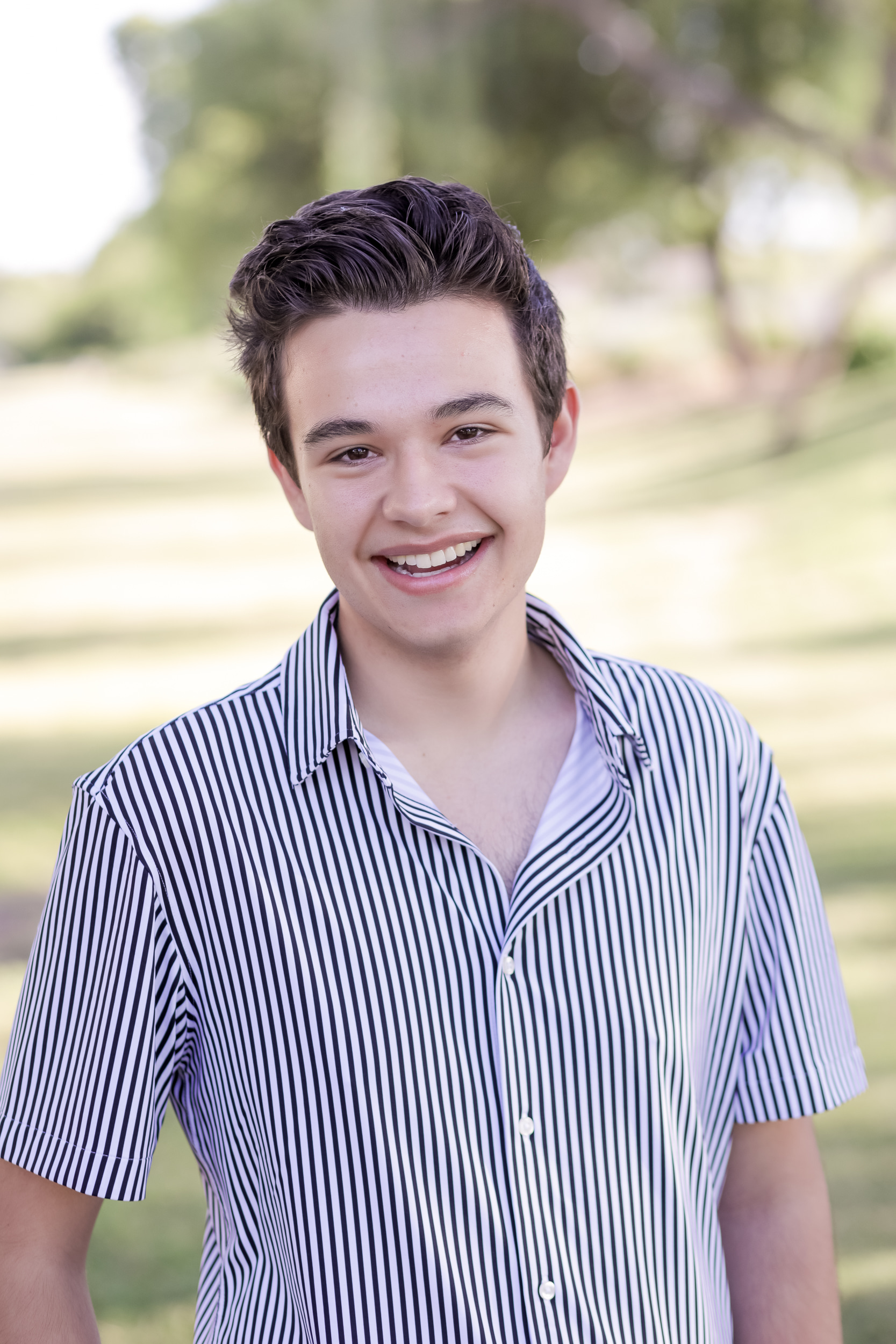
Caleb Jones
Question: How did you end up in economics?
Answer: I was initially a political science major but switched over to economics. I believe that economics provides a quantitative study of human behavior with applications in business. I am fascinated by how individuals’ decisions influence the world around us, so this seemed like the perfect degree for me.
Q: What do you like most about economics so far in your academic career?
A: I really enjoy the versatility of economics and its ability to tackle problems with varying magnitudes. It helps me analyze individual welfare programs at my current job and break down the causes and effects of current global events.
Q: What are your future career aspirations?
A: I am currently debating between two professions: a consultant and a professor. As a consultant, I could challenge myself daily with new projects and problems in different industries. As a professor, I could give back to my community and educate the rising generation and future leaders of tomorrow.
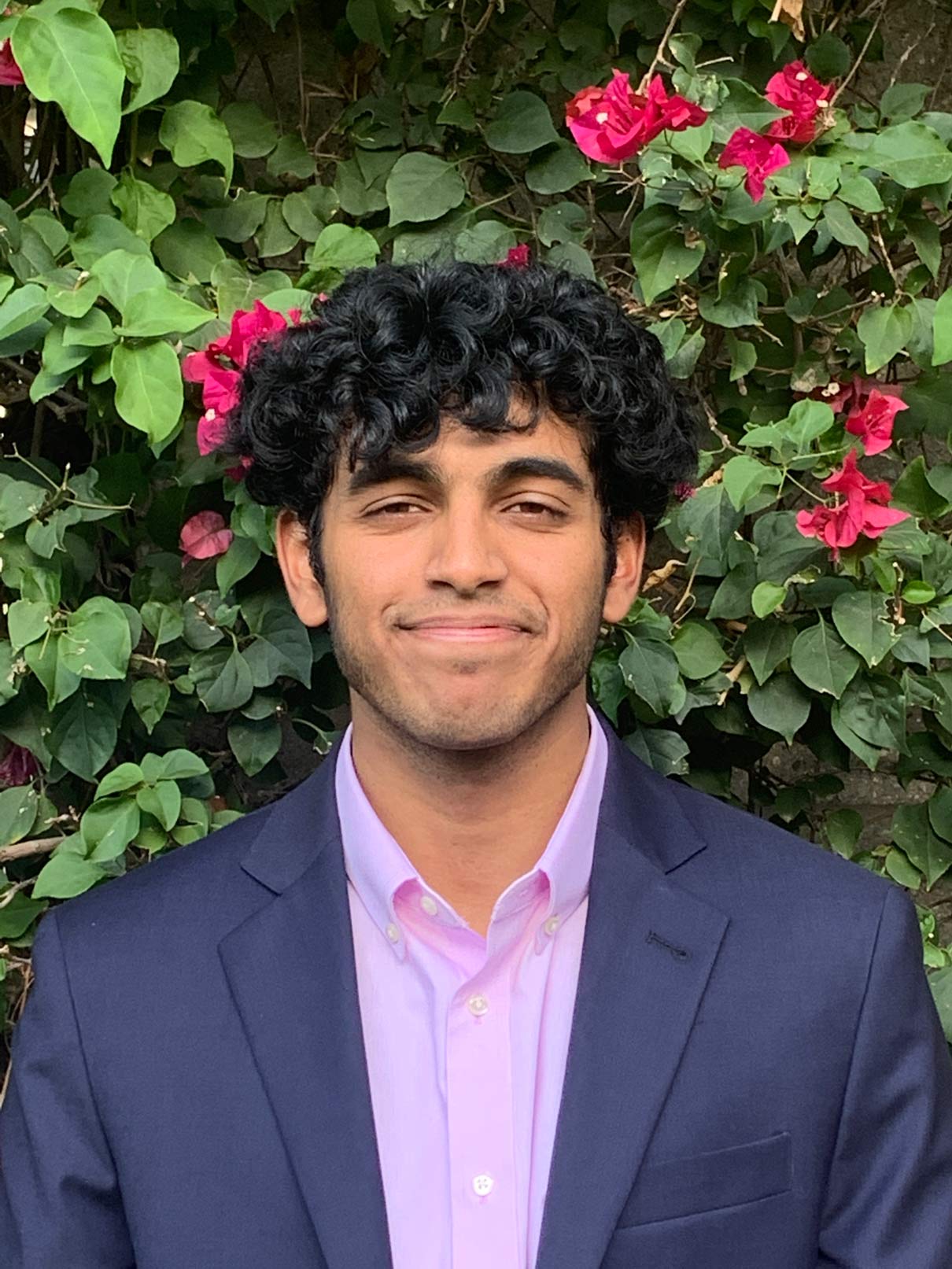
Raghav Warrier
Question: How did you end up in economics?
Answer: I started off as solely computer science, and realized I didn’t want to go into software development. Since I enjoyed economics in high school, I decided to add an economics minor and a math major to my degree so that I could apply my CS knowledge to solve quantitative economic problems.
Q: What do you like most about economics so far in your academic career?
A: So far, I have particularly enjoyed learning about how individuals make economic decisions, particularly when they do not have complete information or when they do not know the exact outcome. The mathematical and theoretical models that explain this are fascinating.
Q: What are your future career aspirations?
A: My goal is to pursue a PhD in Economics from a top program, and become an economist and conduct academic research in welfare and poverty or financial economics.
Jeremy Olenyn
Question: How did you end up in economics?
Answer: I chose economics as my major after taking a macroeconomics class during my senior year of high school. I thought that the subject was interesting and that it applied to a lot of the real world. I've been an economics major since I first entered college, and have grown even more fascinated with the subject over the years.
Q: What do you like most about economics so far in your academic career?
A: What I like most about economics is how much of it applies to the real world (e.g., politics, business/financial decisions, nationwide trends, etc.). I especially enjoy the study of monetary policy and central banks.
Q: What are your future career aspirations?
A: My future career aspiration is to end up in the front office of a sports franchise (preferably in baseball). If not that, then I would like to work for a regional bank such as the Federal Reserve Bank of St. Louis or San Francisco.

Adam Malaki
Question: How did you end up in economics?
Answer: For me, economics was really love at first sight. I took an introductory class to economics in 8th grade, and quickly became interested in the questions the field looked to answer. This was only further cemented after AP and dual enrollment courses, with the additional complexity being a welcome challenge. So, when I applied to ASU, economics was the natural choice, as I had been dead set on the field since middle school.
Q: What do you like most about economics so far in your academic career?
A: I really love the challenge of modelling in economics. Predicting real world outcomes through a set of assumptions and operations is daunting, which makes the many substantive models in the field all the more awe-inspiring. Even when these models fall short, they spawn a series of rabbit holes on how to improve or specify them that are always interesting to explore. Through this process of modelling, economics really works to remove the mystery on why certain behaviors happen, which is very satisfying.
Q: What are your future career aspirations?
A: After I graduate from ASU, I intend to pursue a PhD in economics, as I want to continue delving into the field until I have the mastery demonstrated by my excellent professors. Being able to quickly and expertly command the logic of economics to analyze a variety of issues is an aspiration of mine. Beyond a PhD, the plan is more open, as I am determined to explore the opportunities that arise from my work.
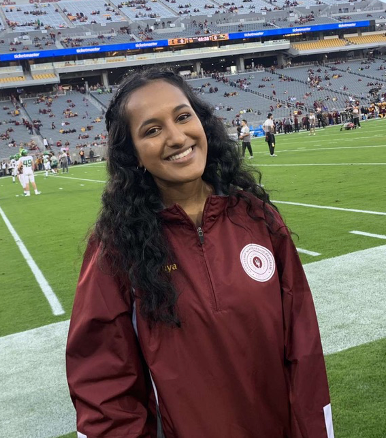
Nithya Raman
Question: How did you end up in economics?
Answer: I did not have the traditional path to studying economics. I was solely a political science major for my first semester at ASU but felt something was missing from my undergraduate experience. I really wanted to pursue a major that allowed me to explore a more analytical way of thinking while gaining a quantitative skill set. With this in mind, I chose the additional economics major.
Q: What do you like most about economics so far in your academic career?
A: I love how diverse economics is as a field and how applicable it is in every sector. I have had the opportunity to explore a range of topics from econometrics to education to development policy. This is not characteristic of many majors but has made the study of economics incredibly special to me.
Furthermore, economics has allowed me to have informed conversations with individuals in public, private, and non-profit sectors. In this way, I don’t just appreciate the wide range of topics I have learned about, but the type of student I have become as a result.
Q: What are your future career aspirations?
A: I would like to pursue policy consulting as a future career. I am currently working on an internship in this space and have found it very fulfilling. It perfectly combines my undergraduate studies and allows me to serve the public sector with actionable solutions.
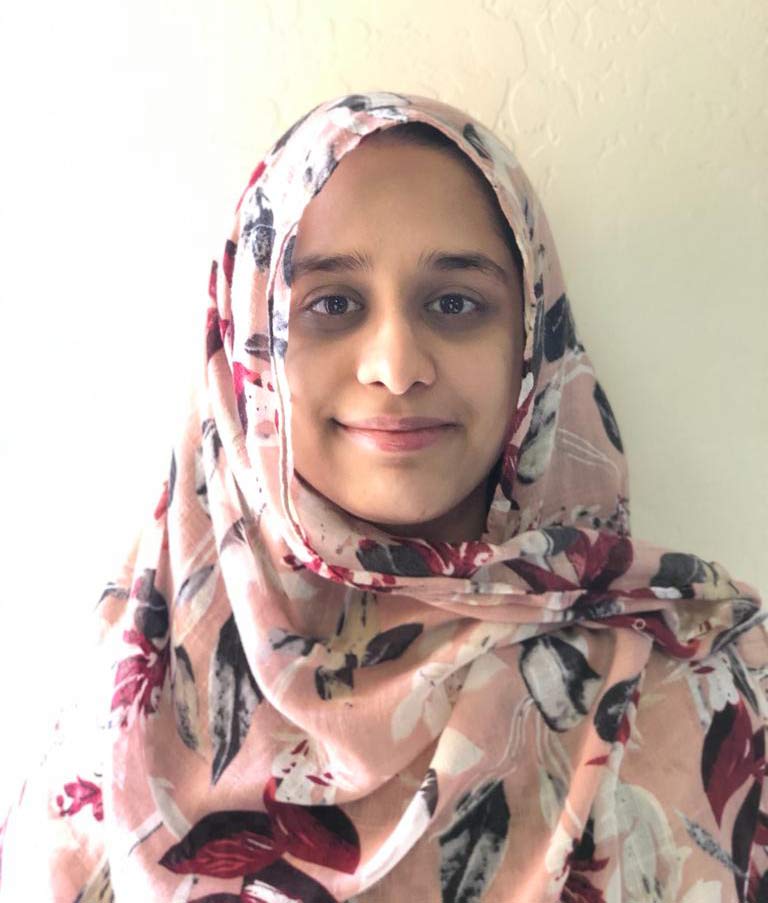
Bisma Warsi
Question: How did you end up in economics?
Answer: Economics was actually my second choice, with computer science being my first choice. I am good at math and enjoy working on math related subjects, which is why I selected economics as my second choice. At first, my plan was to resolve the issue that did not get me into my first choice but after taking two classes, I ended up loving economics and decided to keep it as my major.
Q: What do you like most about economics so far in your academic career?
A: I like being able to understand the wellbeing of our country and the rest of the world. I am not a political person, but I enjoy learning about the economic state of different countries. Economics tells you how the market works, not just as a producer but as a consumer as well. Every decision I make now is based on my learnings.
Q: What are your future career aspirations?
A: I am still exploring my future career path, although I do like teaching a lot. I am confused because I have many interests. This is why I added a psychology minor and applied business data analytics certificate to my degree, so I can keep my options open. I also took the global tech experience web development program this summer, and next summer I plan on taking the digital marketing one. Hopefully, by the time I graduate I will be able to figure it out.
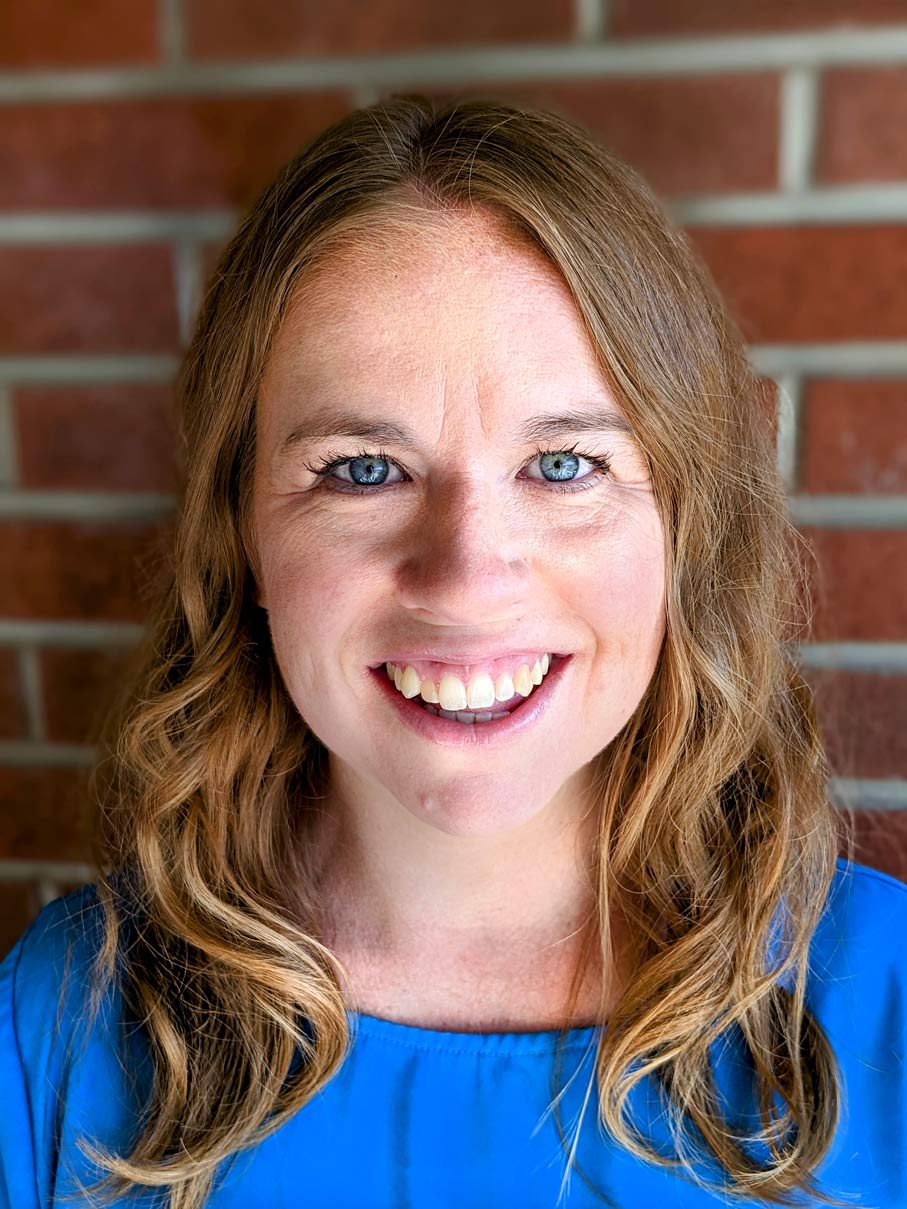
Alicia Lewis
Question: How did you end up in economics?
Answer: I first became interested in economics while sitting in Rocky Mountain Hospital for Children. My twins were born three months before their due date, and my daughter was transferred to the children’s hospital for surgery when she was five days old. The next three and a half months I spent traveling between the NICUs in the community and children’s hospitals to be with my twins.
During this time, I became curious about the two hospitals’ differences. Why were two physicians recommending different standards for my very similar babies? In trying to make the best medical care decisions for my children, I read and spoke with physicians about probabilities and severity of risks. The literature on risk and physician behavior led me to economics, and I fell in love.
Applying mathematical thinking to organization and behavior provided a clear, useful way to describe the world. Once my family’s medical complications were resolved, I enrolled at ASU to study economics.
Q: What do you like most about economics so far in your academic career?
A: My favorite part of economics thus far has been applying what I have learned in my core coursework to explain the real world. I am working on a research project that uses risk aversion and expected utility maximization to model physician decision making behavior for kidney transplants. Using economic theory and large datasets to model how and why resources are allocated has been challenging, exciting, and has the possibility of improving policy making decisions.
Q: What are your future career aspirations?
A: My career aspiration is to become an economics professor. My time as an Undergraduate Economics Instructional Scholar has solidified my desire to teach economics, and my time working as a research assistant has only increased my excitement to use data, math, and economic modeling to study the choices humans make.
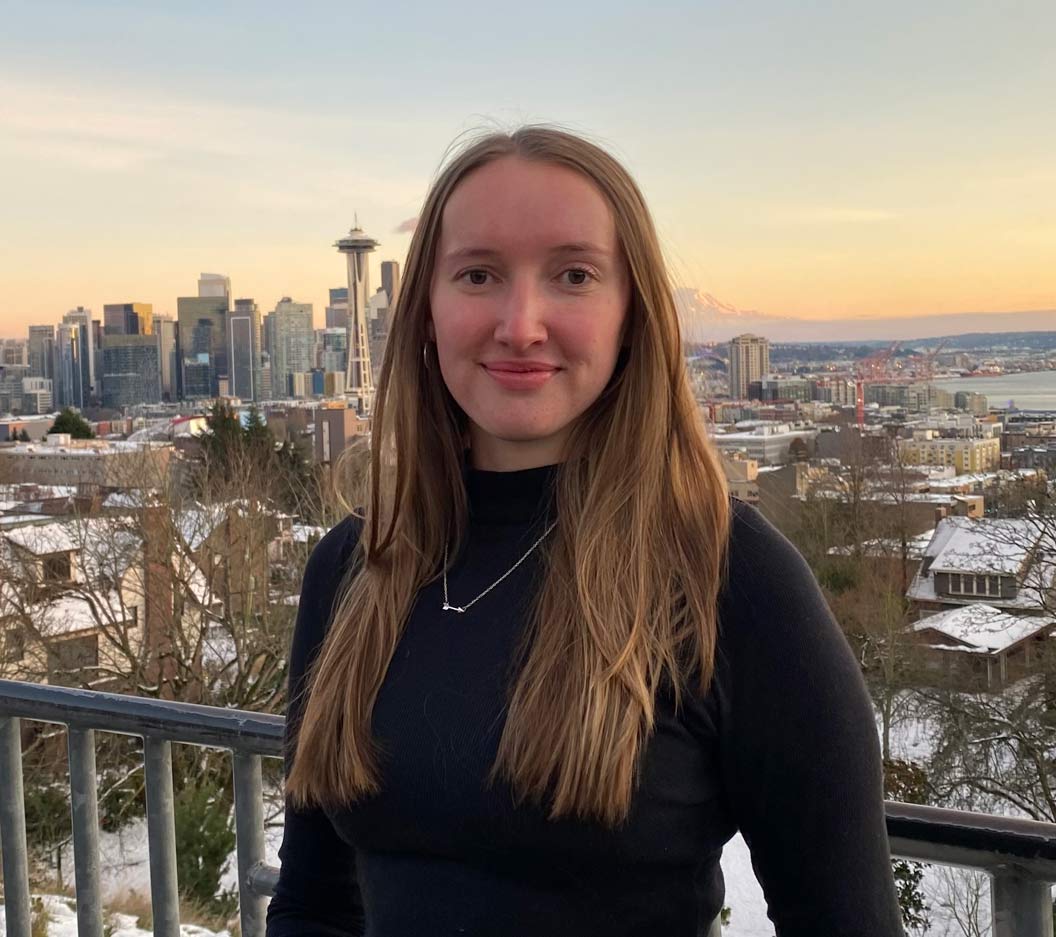
Ally Finkbeiner
Question: How did you end up in economics?
Answer: I added economics as a second major during my freshman year because I wanted to study something that would be employable in numerous different sectors. I had taken an econ class in high school and really enjoyed it, and I also thought it would be useful in understanding global news and politics.
Q: What do you like most about economics so far in your academic career?
A: The thing I like most about economics is that it is truly interdisciplinary and has so many applications. I've met people in the econ department who are interested in everything from housing markets to the role of women in economics, and it's great to see the way different students engage with econ and apply it to whatever they're most passionate about.
Q: What are your future career aspirations?
A: My ideal career would be something that combines economics with my other major, conservation biology and ecology. I'm very interested in species conservation and environmental protection, and economics plays a significant part in how the world is going to move forward with this mission. I'd like to work in ecological economics and find ways to contribute to and analyze various environmental policies in order to be as successful as possible in combating climate change and protecting the planet.
Latest news
- Flexible ASU Evening MBA helped Layla Gabir build new confidence, connections, and career momentum
Layla Gabir (Evening MBA '26) works full-time as an epidemiologist for Maricopa County and…
- Computer information systems student Andrew Patel balances school with full-time work, earning stockbroker certification
Andrew Patel (BS Computer Information Systems '26) was looking for a program that combined…
- MRED program set W. P. Carey grad up for career success
Alum Zachary Hartman (MRED '10) shares how ASU's Master of Real Estate…